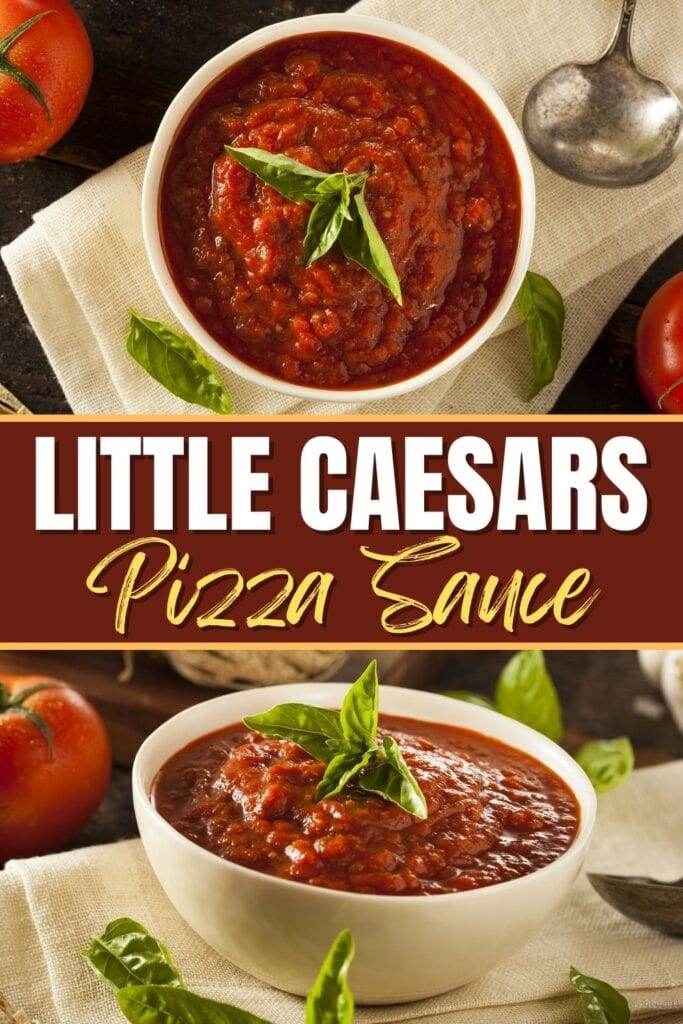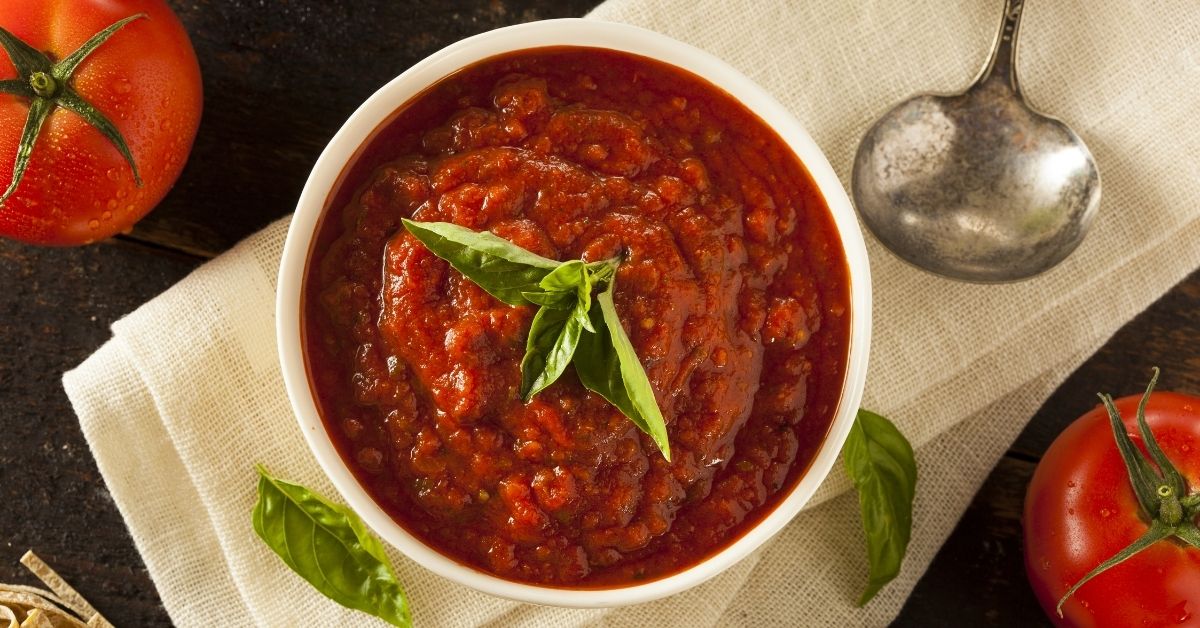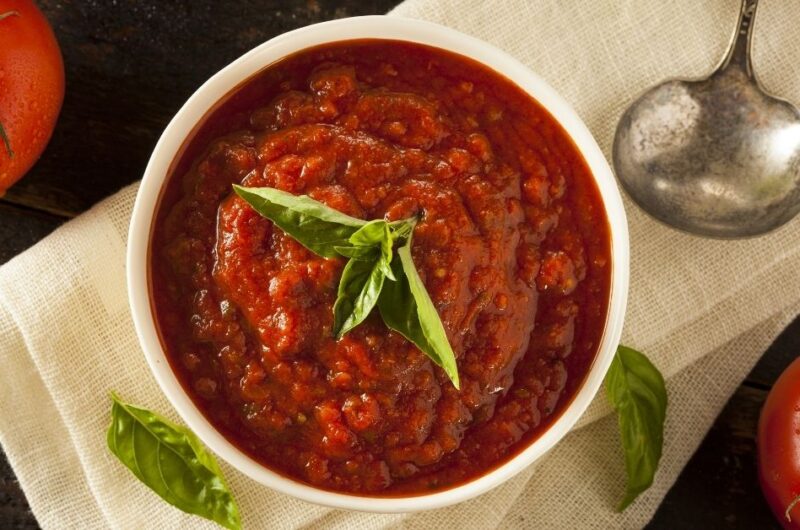A good pizza starts with a great sauce. Make your homemade pizza extra special with this copycat of Little Caesars pizza sauce!
Pizza sauce is more than just canned tomato sauce. The tomato flavor should be accompanied by bright, earthy flavors from herbs, spices, and seasonings.
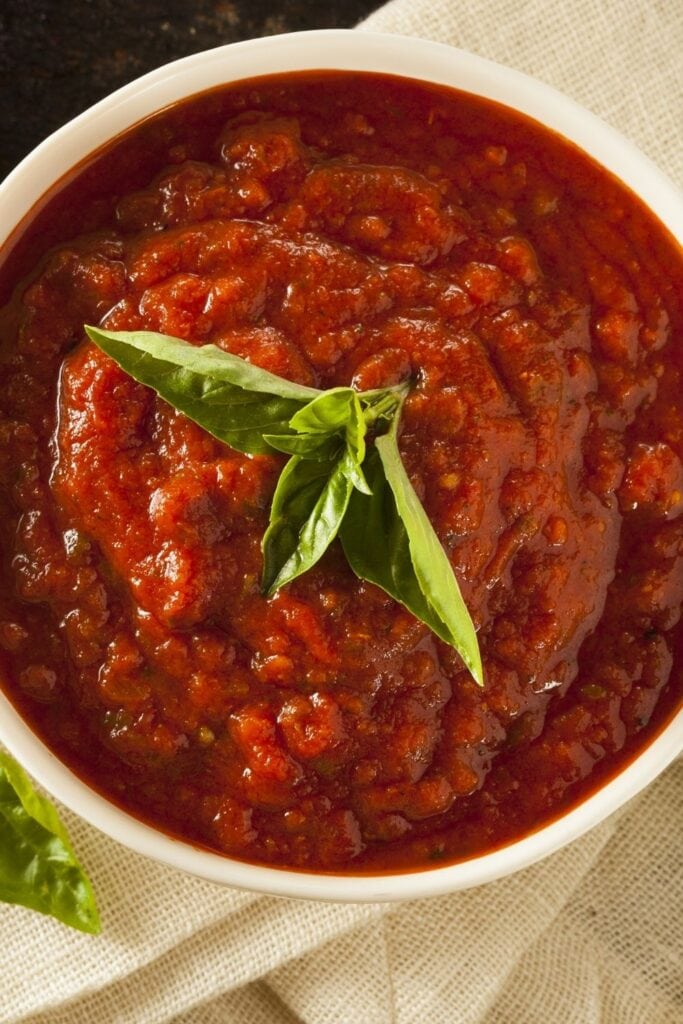
It should be wonderfully thick and spreadable, not watery like marinara.
By these standards, you might think pizza sauce is complicated to make, but you couldn’t be more wrong.
With just a can of pureed tomatoes and a few staple seasonings, you’ll be on your way to the pizza of your dreams. Let’s dive in.
Little Caesars Pizza Sauce
This DIY pizza sauce is a ridiculously easy recipe that’s done in no time. All you’ll need is one bowl and a few pantry staples.
A lot of pizza sauce recipes online call for cooking the sauce, so you might be wondering how come this doesn’t.
Well, did you know that in Italy, pizza sauce is meant to be raw? Yep – tomatoes straight from the can, with a touch of seasonings.
It’s only here in the US that we like to simmer pizza sauce for hours.
If you’re iffy about it, give it a chance. Believe me, this pizza sauce tastes even better than Little Caesars!
What’s the Difference Between Pizza Sauce and Spaghetti Sauce?
While they look and taste similar, pizza sauce and spaghetti sauce are not entirely the same.
Pizza sauce is thicker and more spreadable than spaghetti sauce, so if you use a jar of marinara to coat your pizza crust, you might end up with a runny mess.
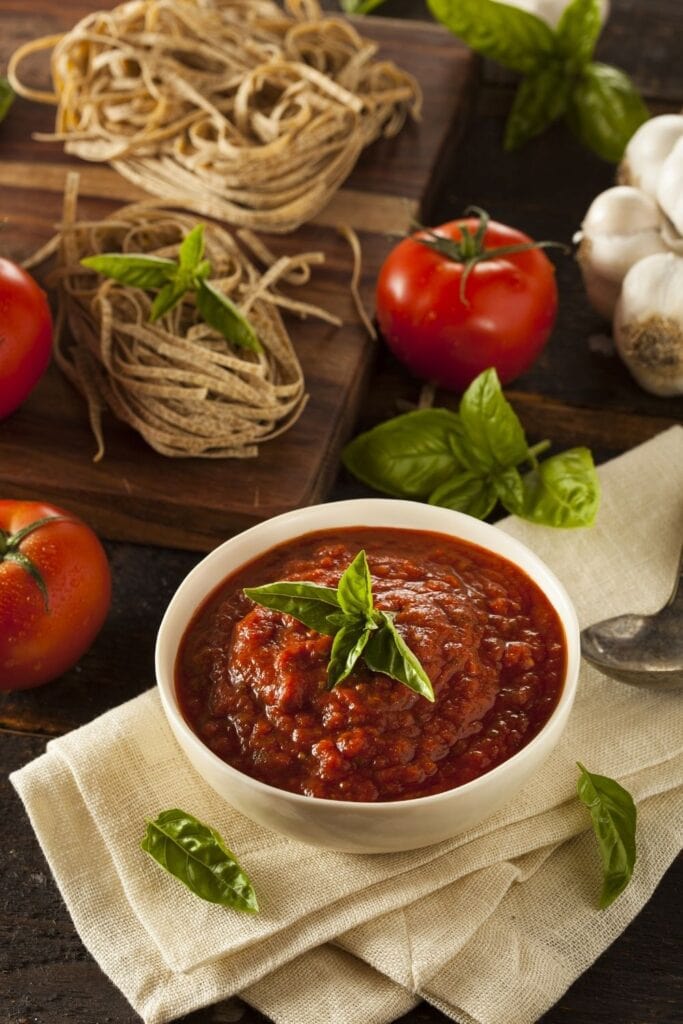
Ingredients in Little Caesars Pizza Sauce
- Tomato Puree – It’s the base of the sauce. This is a no-cook pizza sauce, so pureed tomatoes are your best option.
You can also use canned whole or crushed tomatoes for a chunkier sauce, but you’ll need to cook them.
- Dried Herbs – I used a blend of dried oregano and basil to give the sauce that lovely, earthy flavor. Feel free to add other herbs, too.
- Seasonings – A bit of salt, sugar, and ground pepper gives the pureed tomatoes a balance of sweet and savory flavors.
- Spices – A mix of garlic powder and onion powder. You might ask – why not use fresh garlic and onion? While fresh is best, remember that this is a no-cook recipe. Powdered spices will provide the flavor you’re looking for in the aromatics, without needing to turn on the stove.
Can I Use Tomato Paste, Tomato Sauce, or Ketchup for Pizza?
Tomato paste as a substitute for pureed tomatoes? Heck no. Tomato paste is super thick and concentrated and is only used to thicken tomato-based sauces.
So, if your goal is to thicken your tomato sauce, by all means – go ahead. But if you plan on swapping out pureed tomatoes with tomato paste, forget it!
Tomato sauce, on the other hand, is a much more viable substitute. Your sauce won’t have those small chunks of tomato in it, but it works in a pinch.
Lastly, let’s talk about ketchup. While some people love adding ketchup to pizza, please don’t use it as a pizza sauce.
The taste just isn’t the same. Ketchup is way too sweet to be a pizza sauce.
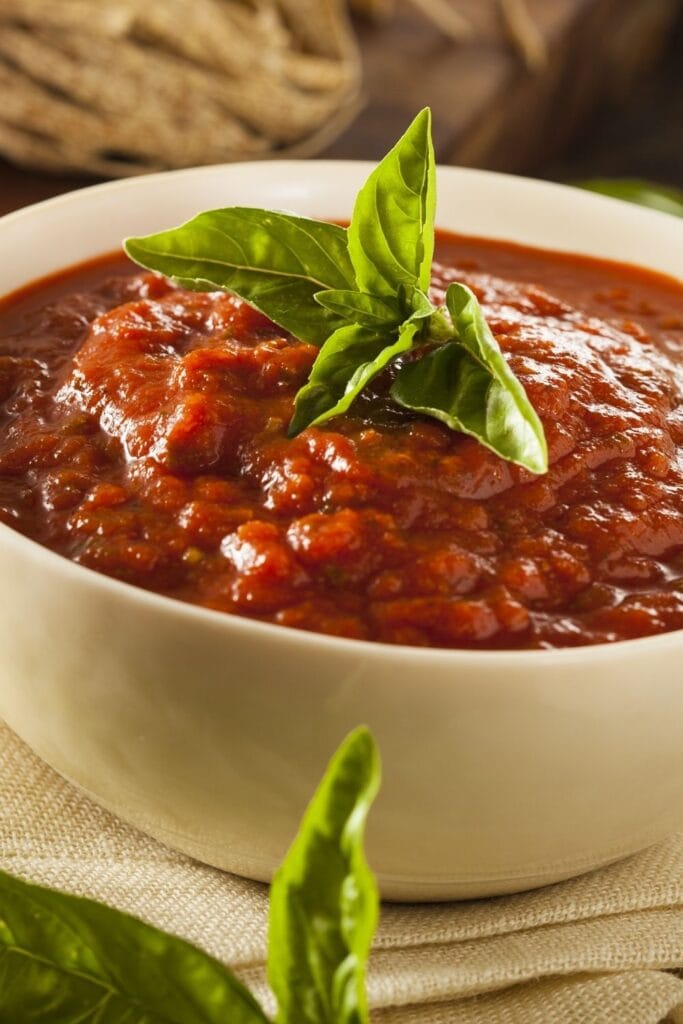
Tips and Tricks
- The recipe calls for canned pureed tomatoes, but, of course, you can use fresh tomatoes as well, especially in the summer, where tomatoes are in full bloom!
- If using homemade tomato puree, use either Roma or San Marzano tomatoes.
To puree fresh tomatoes, boil them for 1 to 2 minutes. Let them cool completely, and peel away the skins. Puree them in a blender, and voila.
- You’ll need 15 ounces of tomato puree for this recipe. If you can’t find this size, just measure out 1 3/4 cups from the larger, 28-ounce can. Or, just double the recipe! It freezes well, anyway.
- Others like to cook the canned tomato puree to get rid of its tin-like flavor. You can do so if you please, but I don’t think it’s necessary.
Variations
The great thing about making your own pizza sauce is that you have the liberty to season it as you please.
- My blend of spices and seasonings is just a personal choice, so go ahead and add your own touch to yours. For instance, I hear fennel seeds add a lovely, aromatic flavor.
- Rosemary, thyme, and marjoram are also terrific flavor additions.
- I use dried herbs and seasonings for my recipe, but you can also use fresh, or a mix of fresh and dried.
- Cheese and tomato sauce are a perfect combination. Add shredded parmesan or Romano cheese for an extra layer of flavor.
- For some heat, spice up your sauce with red pepper flakes or cayenne pepper.
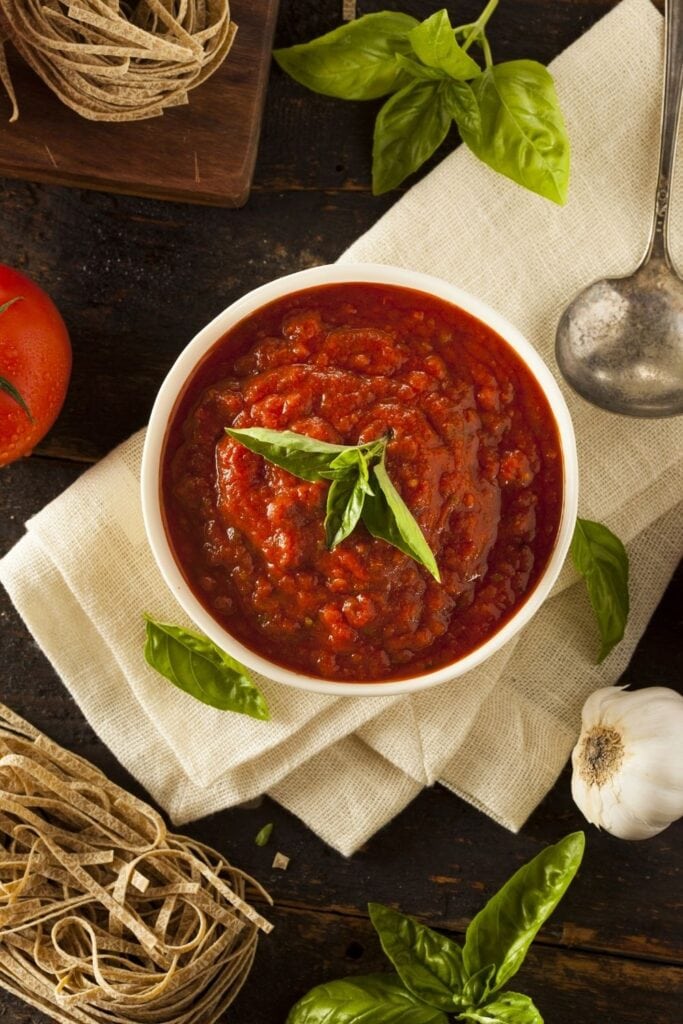
Can You Freeze Pizza Sauce?
Absolutely. In fact, pizza sauce freezes well. So feel free to double the recipe to make more!
Here’s how:
1. Let the pizza sauce cool completely.
2. Pour it into airtight food containers. I like to portion them at this point so I can just easily thaw out enough sauce for one pizza. That way, I don’t need to defrost the whole thing and re-freeze the rest.
I like to use freezer-safe bags for storing pizza sauce because I can easily stack them in the freezer.
Whatever container you use, be sure there’s at least half an inch of allowance on top because the sauce will expand as it freezes.
3. Label the container accordingly – pizza sauce keeps well in the freezer for up to 3 months.
4. To thaw, transfer the sauce to the refrigerator and leave it overnight.
More Copycat Sauces You’ll Love
